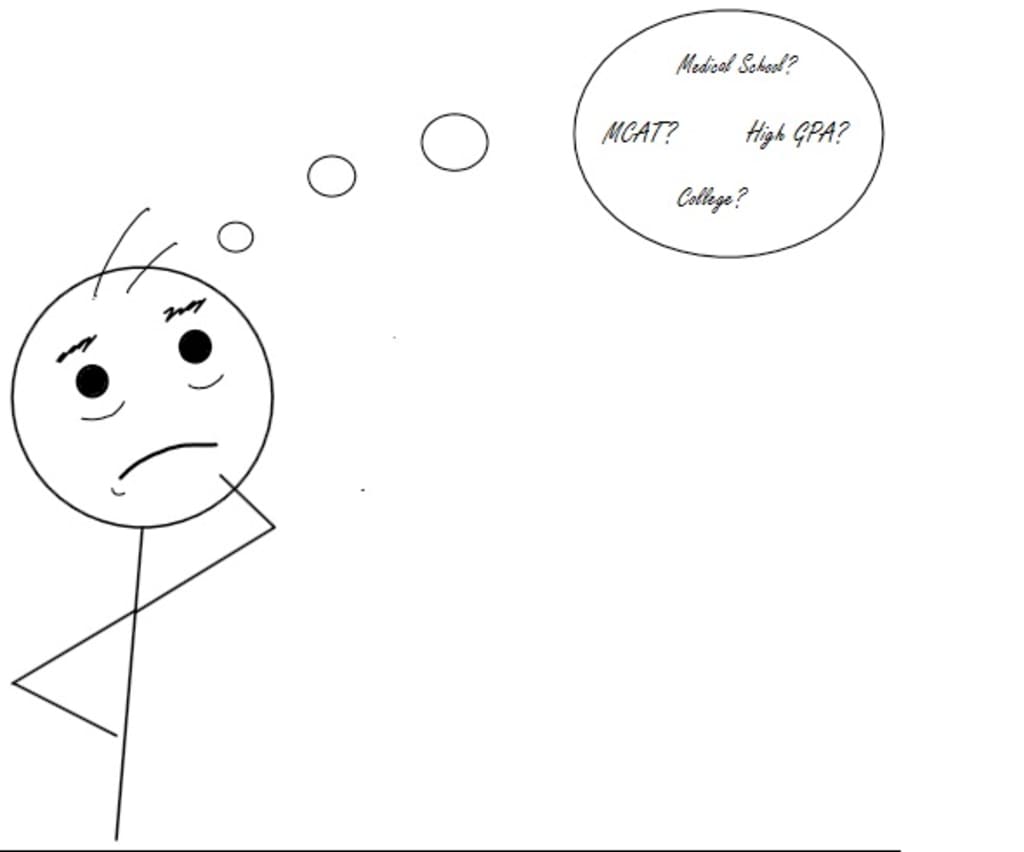Choosing an Undergraduate College for Pre-Health Students, and Why Ivy-League Does Not Matter
My College Realization

Getting into an Ivy League school was my dream in high school. I was the typical student that stressed too much about grades, and participated in many extracurriculars. However, most of my extracurriculars were irrelevant to me–they were other items to put on my college application to make me “stand-out” in the high pool of overachieving applicants applying to ivy leagues.
The busiest year of high school for me was when I was going to take the SAT. I thought accomplishing a perfect score was essential before applying to prestigious schools. However, I scored 200 points below my goal, and didn’t even apply to any ivy leagues, because I thought receiving the rejection letter would have devastated me more than not applying.
For a long time, I believed that attending an Ivy League school would give me a guarantee to go to Medical School. Over my time at University, I realized this is not the case.
This is because of the grading system. In every class, it is not important how well you do, but how well you do compared to others. I realized this because instead of being eager to find out my grade on a hard midterm exam, the first question I would ask my peers is, “What is the average?”.
Every professor strives to mold the average to a 75. This is a “C.” A professor will curve a class up (or sometimes in my case, down) to fit around this regulation. For instance, if the average for an exam is a 65, and you receive an 80, you will be curved up 10 points. However, if the average is an 80 (considered a “C”), and you score below this average, let’s say a 75, then your test score will be around a C-.
The way the grading system works increases subjective competition between students, and, although I did not realize it automatically, also affected my way of thinking. For example, when studying with a group of peers for an exam, instead of thinking “we should all understand the information,” it turned into “I hope you all do worse than me, so that I will be curved up to an A."
Although I cannot state that this will happen in every class, and that every professor will construct their class like this, this is how all my hard science courses (Biology, General Chemistry, Organic Chemistry) have been structured. This is also why they are “weed out classes,” and if a student receives a C in any one of these hard science courses it will negatively reflect their application to a pre-health school.
I wish this way of thinking wasn’t popular, and I wish for everyone to work together, but in this kind of world, only the top students will succeed.
Getting into Medical School, you strongly need two things: a high GPA and MCAT score. In undergraduate school, you will be doing everything to attain these two criteria. Attending an Ivy League school will make it more difficult to achieve a high GPA than someone attending a non-Ivy League University. Think about trying to score higher than the average on exams to avoid a C, when everyone in your class is already an overachieving student. Although not impossible, your focus will be about school 24/7, and it can potentially degrade your mental health, and social life. Regarding the MCAT, you do not learn the material “better” in an Ivy League class. Every class learns the same material, and you will be just as prepared to take the MCAT if you do not choose an Ivy League school.
In conclusion, choosing the right undergraduate college for pre-health students is about two things: cost, and opportunity.
Many students take out loans for medical school, and since your undergraduate choice is flexible, try choosing a university that is the cheapest. However, also keep in mind that you need to choose a University that will give you a range of opportunities.
I chose my University, because it is a large research University that has many hospitals right on campus. It was easy for me to get involved with research, and I have countless hours shadowing many kinds of doctors. I believe that I have the time to do these extracurriculars, and keep a high GPA based on the undergraduate school that I attend, and I am very confident in matriculating to Medical School one day.
About the Creator
Gosia Fryc
I am a junior at the University of Pittsburgh Studying Chemistry on the pre-dental track. Here to tell you the tea.






Comments
There are no comments for this story
Be the first to respond and start the conversation.